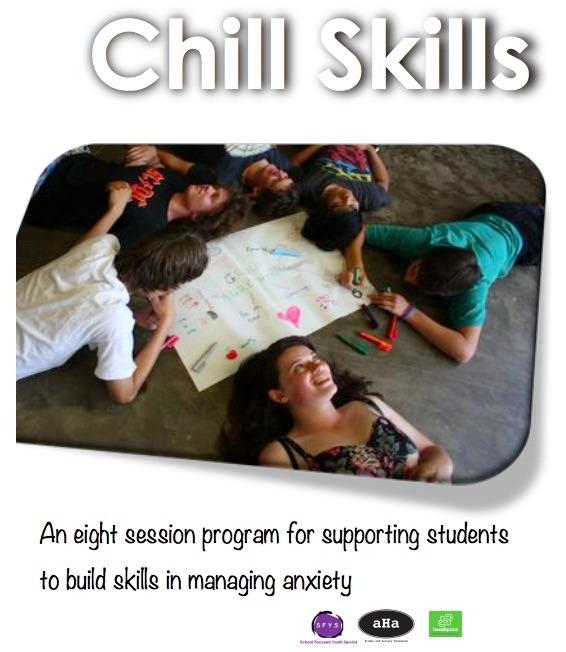Sign and share the ART THERAPIST = MENTAL HEALTH PRACTITIONER petition here: https://www.change.org/arts-therapist-mental-health-practitioner
Anxiety disorders are the most common mental health problems experienced by young people. In Australia, anxiety disorders are estimated to affect about one in every 10 young people aged 18-24 years (1), with the rates higher among young females (14%) compared to males (8%). The most common anxiety disorders reported by young Australians are social anxiety and post-traumatic stress disorder.
Overall, about half of people with anxiety disorders experience their first symptoms by the age of 11 years, which is significantly younger than for most other mental health problems (2).
– From the headspace website www.headspace.org.au
The “Chill Skills” project was delivered and evaluated in two secondary schools and the findings of the evaluation resulted in an award of $80,000 NAB Schools first funding so it could be delivered in two further secondary schools.
Sign and share the ART THERAPIST = MENTAL HEALTH PRACTITIONER petition here: https://www.change.org/arts-therapist-mental-health-practitioner
There was an overall 24.95% increased knowledge of triggers to anxiety, along with a 55.15% increased knowledge of coping strategies and a 25.05% increased intention to help-seek amongst the students.
Across the two pilot projects, students’ average productive coping style improved from 61.3% to 68.6%, an increase of 7.3%. Productive coping includes skills like trying to solve the problem and getting enough rest.
The students’ average reference to others also increased from 52.1% to 57.9%, up 5.8%. Reference to others is an important coping skill that includes asking others for help, or help seeking, one of the most
significant factors in early intervention.
Non-productive coping styles include responses that don’t help the situation and can even make it worse, such as using alcohol or other drugs, or fighting with people. The average non-productive coping styles amongst group members reduced from 54.6% to 49.1%, a desirable decrease of 5.5%.
There was an overall 24.95% increased knowledge of triggers to anxiety, along with a 55.15% increased knowledge of coping strategies and a 25.05% increased intention to help-seek amongst the students.
This increase in understanding and knowledge about anxiety, along with an increased intention to seek help for anxiety are significant because they are indicators of resilience.
The Chill Skills project ALSO provides solid evidence that an Arts Therapist can be of great value as a Mental Health Practitioner in Secondary School settings, because I designed this project and am the author of this manual.
The Chill Skills project ALSO provides solid evidence that an Arts Therapist can be of great value as a Mental Health Practitioner in Secondary School settings, because I designed this project and am the author of this manual.
It is available here to read and download:
https://carlavanlaar.com/wp-content/uploads/2019/06/van-Laar-2012.-ChillSkills-.pdf
Dr Carla van Laar MCAT DTAP AThR
Professional Arts Therapist.
Sign and share the ART THERAPIST = MENTAL HEALTH PRACTITIONER petition here: https://www.change.org/arts-therapist-mental-health-practitioner


Leave a Reply